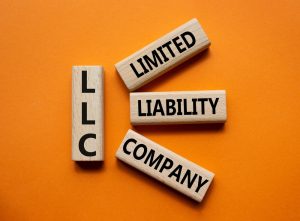Should You Incorporate Your Home-Based Business

Some people form a home-based business dream of the day when they become the CEO of their own corporation. Others are more interested in securing certain advantages offered by a corporation, but many people incorporate simply because they have heard that they should. There are valid reasons to formally incorporate your home-based business, but it is critical to explore the advantages and disadvantages of incorporating before you make a final decision.
What Is a Business Structure
Essentially, a business structure defines how your business is organized for purposes of taxation and liability. When you started your home-based business, you chose its business structure. Most home businesses start as sole proprietorships, but some businesses decide to form corporations from the very first. Other possibilities include forming a limited liability company, a general partnership, or a limited liability partnership. Every structure has its own set of advantages and disadvantages. Fortunately, you do not have to continue operating under the same structure throughout the life of your business. Many entrepreneurs launch businesses as sole proprietors, operate for years under that structure, and then chose a different business structure.
Advantages of Incorporating a Home Business Over Operating as a Sole Proprietor
Before proceeding, it might be useful to discuss the concept of a legal entity. In simple terms, a legal entity is a company, corporation, organization, or individual with the power to enter into contracts, act as the plaintiff or defendant in a lawsuit, own property, or assume other rights and obligations. If you operate a sole proprietorship, your business is not a separate legal entity. This means that any debts or other liabilities incurred by your business are yours to bear. A judge could order that your personal assets, including your home, must be used to satisfy the obligations you incurred for your business.
On the other hand, corporations are themselves legal entities that are separate from the owners or shareholders. As a rule, your personal assets cannot be used to cover the debts of the corporation. There have been a few instances in which fraud or other illegal activities committed by the owner of a corporation exposed their personal assets to court-ordered seizures, but this does not happen unless malfeasance can be proved. Therefore, shareholders and owners are only risking the capital that they invest in the business.
As a separate entity, your corporation would have its own credit rating. If the company is slow to pay its bills or winds up filing bankruptcy, this information will not appear on your personal credit report. With a sole proprietorship, credit is extended on the basis of your personal credit rating, so any defaults can affect your ability to secure credit for personal purchases, including buying a home or a vehicle.
A corporation can often find it easier to raise capital. Many financial institutions hesitate to lend money to individuals for business purposes, especially if the business cannot prove that it has been operating profitably for several consecutive years. Furthermore, corporations can raise money by selling stock. They can also use stock options to help them attract and retain high-quality employees.
Another point to consider is that sole proprietorship ceases to exist when the owner dies, but a corporation has a life of its own. Sole proprietorships are not ideal for those who want to leave a business for their children or spouses to inherit.
Disadvantages of Choosing a Corporation vs Sole Proprietor
To launch a business as a sole proprietor, you need to do very little other than start operations. Depending on the laws in your state and city, you may need to apply for a business license or register your fictitious name if you are conducting business under a name other than your legal name.
To incorporate, you will need to file a variety of legal documents, including your articles of incorporation and corporate bylaws. Filing fees vary by state, but they range from as little as $50 to more than $800. Keep in mind that these are just the filing fees. The cost of preparing the documents can often triple or quadruple that amount, and the fees charged by an attorney or accountant should also be considered. If your corporation does business in states other than the one in which you incorporated, you usually will also need to file as a foreign corporation and retain a registered agent with a physical business address in that state.
Your taxes will also be impacted by whether you operate a sole proprietorship or incorporate. As a sole proprietor, you report your business earnings on a separate schedule when you file your personal income taxes. Your business earnings will be taxed at whatever rate applies to your total earnings for the year. With a corporation, the corporation pays taxes on its earnings, and you will pay taxes on your salary or other withdrawals from the corporation. Therefore, you could end up paying more in taxes with a corporation than you would as a sole proprietor.
One final disadvantage of a corporation is that it must be formally dissolved. As a sole proprietor, you can simply stop your operations.
Is a Limited Liability Company a Better Option
Limited liability companies offer most of the benefits of a corporation, including the separation of the owner and the business as legal entities. This protects your personal assets and credit rating. LLCs also offer similar tax advantages as sole proprietorships, but this can vary by state. It is not as expensive to form an LLC as it is to incorporate, but in most states, you will still need a registered agent.
Closing Thoughts
No one knows your business better than you, so you are the one who must decide whether to incorporate. If you need additional guidance, you might consider consulting an attorney or accountant to discuss your situation in detail.



